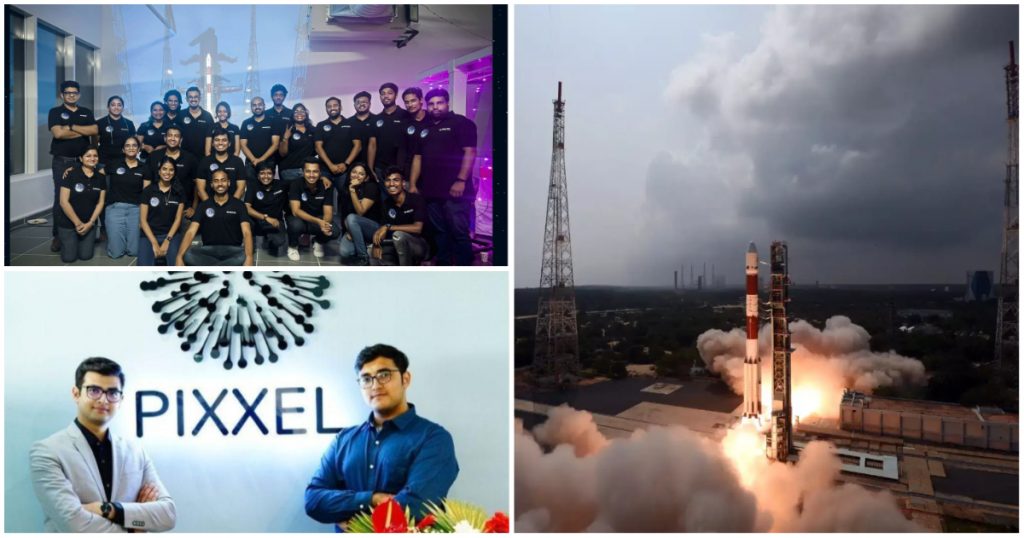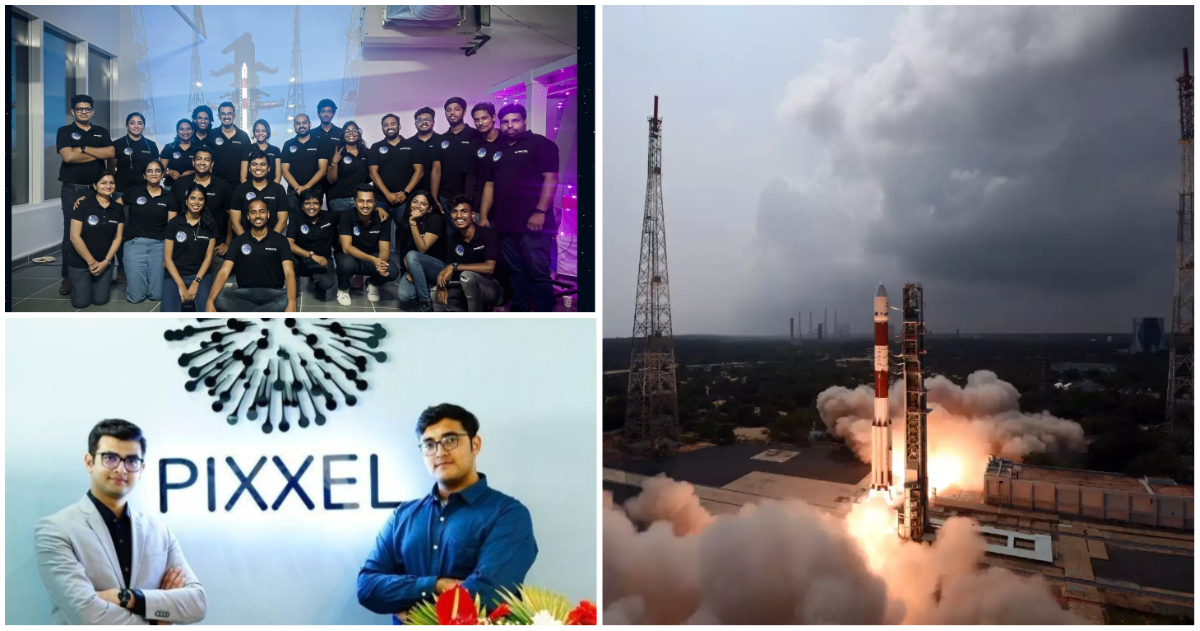India has opened its space program to private players, and startups are cashing in.
Indian space startups Dhruva Space and Pixxel successfully launched their satellites into space on ISRO’s PSLV C54 mission yesterday. The mission carried 9 satellites into space, including ISRO’s EOS-06 satellite, which will help India gather data to optimally utilize its maritime resources. But hitching a ride on the rocket were three smaller satellites built by Indian startups.

Two of the satellites were built by Hyderabad-based Dhruva Space, and were named Thybolt-1 and Thybolt-2. The satellites were built entirely in Hyderabad with the assistance of approximately 20 MSMEs. Thybolt-1 and Thybolt-2 will be used for low data rate communication. Low data rate communication can be used for connecting with remote locations for soil monitoring and crop quality on farms, detection and instant notification of leaks on pipelines, availability of parking spaces, supply chain monitoring, forest fire detection and other uses.
“We have built our satellites at a cost which is multiple times cheaper than those built in the western countries. This would help India get a bigger pie in the global space market,” said Dhruva Space co-founder Chaitanya Dora.
Dhruva Space had been founded in 2012 by Sanjay Nekkanti. Nekkanti had been building satellites since his college days, and was joined by other co-founders in 2019. The startup has raised nearly Rs. 50 crore in three rounds of funding from investors including Indian Angel Network, Blue Ashva Capital, Ravikanth Reddy and others.
The third startp satellite aboard the PSLV mission was built by Bangalore-based Pixxel. The satellite was named Anand, and was the company’ third hyperspectral satellite. This is the first time that Pixxel has launched a satellite from India — it has previously used the services of Elon Musk’s SpaceX to launch its satellies.
Anand is a 15 kg satellite that will help Pixxel prove its imaging and technical capabilities. It will view the earth in detail and provide environmental data through more than 150 wavelengths. “Our hyperspectral satellites are unique in their ability to provide hundreds of bands of information with global coverage at a very high frequency, making them ideal for disaster relief, agricultural monitoring, energy monitoring and urban planning applications. They are equipped to beam down up to 50 times more information in unprecedented detail, compared to other conventional satellites in orbit,” Pixxel co-founder Awais Ahmed said.
Pixxel had been founded in 2019, when co-founders Awais Ahmed and Kshitij Khandelwal were still studying at BITS Pilani. Pixxel plans to build a constellation of cutting-edge earth imaging satellites and a software platform to extract imagery insights that the satellites beam down. The data and insights will help organisations detect, monitor and predict global phenomena in agriculture, oil and gas, climate change, forestry, urban planning and other sectors. Pixxel has raised nearly Rs. 500 crore from investors in six rounds of funding.
Pixxel and Dhruva aren’t the only Indian space startups that have made the news in recent times. Earlier this month, Hyderabad-based Skyroot had become the first Indian private company to launch its own rockets with a successful launch of its Vikram rocket. And with two Indian space startups launching their own satellites just weeks later, it appears that India’s startups are finally coming of age.
